NOVEMBER/DECEMBER EDITION
VOLUME 32, NUMBER 8


NOVEMBER/DECEMBER EDITION
VOLUME 32, NUMBER 8

CARLY DUVALL LE RICHE, GENERAL COUNSEL OF CARILOOP, SAYS A GREAT TEAM REFLECTS THE SUM OF ITS PARTS, WITH EACH MEMBER BRINGING UNIQUE TALENTS AND PERSPECTIVES
50 Women to Watch Round-the-Clock Trading: Will Wall Street Silence Opening and Closing Bells?
10 Questions to Ask Your GenAI Legal Tech Vendor The Bear and The Black Swan Or Why You Need Issue Insurance


Harness the power of Artificial Intelligence with ClauseBuilder AI. Trained on almost 100 years of expertise, this free-to-use breakthrough tool utilizes generative AI language models based on a history of clauses to draft effective arbitration and mediation agreements tailored to your industry needs. With ClauseBuilder AI, the future of dispute resolution is here.


Carly Duvall Le Riche, General Counsel of Cariloop says a great team reflects the sum of its parts, with each member bringing unique talents and perspectives.
CCBJ: Would you tell us a little bit about Cariloop?
Carly Duvall Le Riche: Cariloop is a caregiver support benefit. We pair employees who are caring for loved ones with a care coach who can walk them through their caregiver journey, as well as digital tools to help them plan and manage their care. Say you’re a working parent who needs to find daycare facilities. Your Cariloop care coach can take on the tasks of researching and vetting facilities to find one where you live and that meets your needs. There are all sorts of ways that Cariloop shows up; we’re not just a childcare resource, but also assist concerning illnesses of loved ones, aging parents and other challenges that families may face.
Tell us a little about yourself and what led you to join Cariloop.
I am an attorney with 15 years of legal experience. When I was in private practice, I spent a lot of time advising startups and early-stage companies, creating a passion for working with companies that are developing technological solutions to some of our ongoing problems. That path led me to an in-house role before joining Cariloop. I loved the inhouse working environment and worked in earnest to attain the role that I have now, challenging me intellectually and providing a leadership opportunity. But what excited me most about Cariloop was the opportunity to take my talents to an organization with a mission and a product that I care about.

Tell us about your leadership style and who or what has influenced it.
I believe a great team reflects the sum of its parts, with each member bringing unique talents and perspectives. As a leader, my first job is to understand my team members’ individual strengths and how they work and then to make sure they’re in a role that focuses on what they do best. Then I like to take a step back and let them operate without micromanagement; let them do what they do best without getting in their way.

What qualities do you look for when you’re hiring a new team member?
First and foremost, I care about a lawyer’s judgment. I also want to know how they handle stressful situations; and what their working style is under pressure. I want to hear about how they’ve navigated complex or layered questions. That is remarkably difficult to assess from a resume and a LinkedIn profile, so obviously the interview takes on tremendous significance. One of the things that I also care about is whether the candidate has broad general experience. I’m looking for lawyers who have worked on a lot of different kinds of matters or with a lot of different kinds of companies, as opposed to someone who has been siloed in their job function, only working on one specific type of matter. A broad background would at least make me think that this candidate may have some of the intangible qualities that I’m looking for.
How would you describe the culture of your organization?
Corporate culture is important to Cariloop. Our core values are service, empathy, innovation and integrity and those values show up in everything we do; they aren’t just words that we put on our web page. For example, each of our executive leader functions is organized around those values, from our approach to talent development and retention to how we think about clients and prospects. Our values are something that comes up every single day in our meetings and daily operations. We have organized our culture around those concepts in so many ways.
What is the most influential career advice you’ve ever received?
The first law firm I worked at was in the Midwest. In meetings, one of my colleagues who had grown up on a farm

would say, “We’re planting trees here, not corn,” meaning spend time to nourish things that grow slowly because they have a deep root system that allows us to grow and thrive. I’ve applied that concept over the years, favoring investments in employees, clients and business contacts that are going to pay off tenfold in the future as opposed to something that may give you a quick buck today. Take the time to develop the aspects of your business that are important and unique to you. Even though they may take longer to develop and require more of an investment, those things pay off over time.
What changes would you like to see within the legal profession over the next six months or longer?
A key challenge we still have is the lack of realistic caregiver support. It’s one of the things that attracted me to Cariloop and its product/mission. An attorney’s career typically
takes off right when his or her family responsibilities are beginning to mount. You have this overlapping phase, creating substantial challenges where you’re trying to balance the demands of a career with the needs of a growing family. Whether it’s in private practice or an in-house role, there are a lot of places where policies that support caregivers would make a significant difference in a lawyer’s ability to navigate the competing demands of professional and family life.
Statistics bear this out. A large number of attorneys, particularly women, leave the practice of law, particularly private practice. By offering flexible work arrangements, parental leave, access to affordable childcare services and many other related benefits, you start to foster a culture that recognizes your attorney as both a professional and a caregiver. I just think that, as a profession, there’s a lot more we can be doing in this area.















































According to a survey by the Association of Corporate Counsel and Everlaw of 373 in-house legal professionals in the U.S., effective collaboration in the workplace is an imperative. As in so many cases, technology is pushing the envelope. In-house law departments can work and connect from anywhere, which raises a good news, bad news dynamic and new challenges. “Increasing business complexity is also leading to a wider range of business units now being potential sources of risk for companies, resulting in a greater volume of legal work and a broader set of legal challenges,” according to the ACC collaboration survey. “The results reveal that although legal staff desire greater collaboration and there is a clear recognition of the benefits of doing so, there are impediments preventing legal teams from realizing that full potential.” Among ACC’s key findings:
Better cross-departmental alignment is the top priority of legal teams.
Companies perceive legal teams as roadblocks and overly risk averse.
Law firms lack transparency; other vendors don’t understand company objectives.
The #1 strategy for controlling legal costs is to sweep more work in-house.
Read


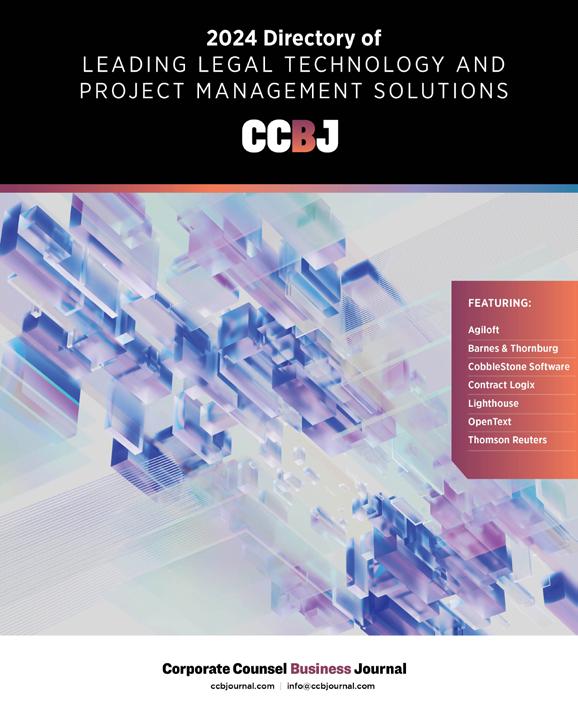
In this piece from Bloomberg Law, Christine Lyon and Jackson Myers of Freshfields analyze California’s new Delete Act and how it could affect state residents’ personal data. The California Consumer Privacy Act (CCPA) broke new ground in the U.S. by giving broad rights to California residents, including the right to request deletion of their personal information. Senate Bill 362, the Delete Act, makes it even easier for California residents to exercise their deletion rights with companies deemed to be “data brokers.” The new law ladles new privacy safeguards atop California’s existing data broker law by allowing state residents to request deletion of their personal information by a single click of a button – imposing substantial new obligations on data brokers, including extensive disclosures of their practices, ongoing deletion of data and third-party audits. Lyon and Myers say this is a major step in California’s regulation of the data sharing economy. Beyond providing the accessible deletion mechanism, the law will shine a light on the practices of data brokers by requiring them to disclose whether they engage in certain sensitive privacy-related practices, and to report statistics about how well and promptly they honor CCPA requests. This information now will be going directly to the CCPA, the agency that was purposebuilt to enforce the CCPA, and now the Delete Act. This further raises the stakes for companies that fall within the broad sweep of data brokers under the new law.
Source: Bloomberg Law
In this survey, executives from 50 companies told McKinsey that most firms have barely scratched the surface of hybrid work. “We have observed that relatively few companies have aggressively addressed the full spectrum of capabilities that would create a best-in-class workplace experience, which we find surprising given the ample potential benefits. For some, long-standing perceptions—including the notion that more days in the office is the measure of success—may stand in the way of meaningful change. For others, it may be that defaulting to old norms is easier than rethinking new ways of working. Companies may find that implementing magnetic and inclusive environments requires significant financial and leadership resources. Despite how difficult it can be to focus on the 12 practices described in the survey, we believe that the upsides, which include potential real estate savings and improved employee satisfaction and performance, are worth the effort”, according to Phil Kirschner and Adrian Kwok, associate McKinsey partners, and Julia McClatchy, a McKinsey partner in the Philadelphia office.
Source: McKinsey & Co.
AAA-ICDR launches new AAAi panelist search to enhance panelist selection with AI technology
LegalSifter acquires Contract Logix - combined company to deliver expanded AI-powered contract operations
OpenText partnership with Cork delivers peace-ofmind with comprehensive cybersecurity and cyber warranty solutions for SMBs and MSPs
Jennifer K. Shanley joins McGuireWoods as Partner in NY
Barnes & Thornburg, Stand Together Foundation and Koch Pro Bono initiative partner together on new pro bono program
Thomson Reuters announces SYNERGY 2024, the premier annual technology conference for professionals
KPMG and ContractPodAI announce strategic alliance to transform managed legal services with AI
Michael A. Fehser joins Axiom as Partner
Megan S. Lewis joins McGuireWoods in Washington D.C. as Partner
Veta T. Richardson, Association of Corporate Counsel President & CEO, announces plans to depart ACC in 2025
David Martin Connelly rejoins McGuireWoods as Partner in Washington D.C.
U.S, Healthcare, life science industries face rising compliance pressures, Barnes & Thornburg’s 2025 healthcare compliance outlook report shows
Too busy to read it all? Try these books, blogs, webcasts, websites and other info resources curated by CCBJ especially for corporate counsel and legal ops professionals.

In his latest Ten Things post, Sterling Miller tackles a hard topic: hard conversations. Most of us avoid unpleasant discussions because we don’t want to be the bad guy. “For in-house lawyers, it’s an even more arduous chore because – while lawyers are usually great when arguing for a client or for a client’s position – we are the worst at having discussions involving ourselves.” Miller offer nine bits of advice followed by a short list of useful resources from sources such as Harvard Business Review (“How to Handle Difficult Conversations at Work”). Here’s a sample of his advice: Don’t avoid it. (“Clearing the air needs to happen sooner rather than later because there is a cost to inaction, usually in the form of your unhappiness at work, low morale among the team, or a toxic work environment that may lead to regrettable attrition – good people heading out the door, leaving you with the ‘problem’ that you should have dealt with much sooner.” Use active listening. “Active listening, compassion and empathy are incredibly valuable tools when dealing with other people, especially when there is friction or problems.” Reframe it. “One trick I learned as I was failing and flailing in my early efforts at having hard conversations was to flip the problem on its head. That is, instead of dreading the conversation as something negative, get excited about resolving the problem.” Read more at tenthings.blog.
In this piece, Open AI’s co-founder and chief scientist, Ilya Sutskever, opens up to MIT Technology Review about what the company is doing to keep artificial superintelligence from going rogue. For example, “Sutskever thinks ChatGPT just might be conscious (if you squint). He thinks the world needs to wake up to the true power of the technology his company and others are racing to create. And he thinks some humans will one day choose to merge with machines.” As if that’s not enough to get your head spinning, Sutskever says ChatGPT, which has already rewritten a lot of people’s expectations about what’s coming, is “turning will never happen into will happen faster than you think.” “It’s important to talk about where it’s all headed,” he says, before predicting the development of artificial general intelligence (by which he means machines as smart as humans) as if it were as sure a bet as another iPhone. “At some point we really will have AGI. Maybe OpenAI will build it. Maybe some other company will build it.” It’s this train of thought, according to MIT Tech, that has led Sutskever to make the biggest shift of his career – setting up a team that will focus on what they call “superalignment.” Check out MIT Technology Review for how humans may merge with AI.

Thanks to the law firms, technology companies, alternative legal service providers, management consultants and other supporters of corporate law departments who share their insights and expertise through the CCBJ network. Your participation is appreciated.


is
is responsible for providing the guidance and support needed to enable accelerated levels of growth, impact and performance for the company. She also oversees the company’s ongoing compliance efforts, supports intellectual property, employee relations and contracting efforts and manages investor relations alongside the executive team. Carly lives in Kansas City with her husband and three kids.

Richard Torrenzano is Chief Executive of The Torrenzano Group which helps organizations take control of how they are perceived. For nearly a decade, he was a member of the New York Stock Exchange management (policy) and Executive (operations) committees. His new book was released in August: CEO Playbook: 101 AI and Communications Game-Changing Stakeholder Strategies
of
at Litera. Matt has 15 years of experience working with law firms and corporate legal departments, helping drive the use of technology to better serve their users and clients. Matt currently oversees the subject and industry matter experts of Litera and works closely with the Product teams on addressing ever-changing customer needs and challenges.

Wigginton is Of Counsel at Holland & Hart. She is a powerful advocate for clients on a range of complex business disputes, from pre-trial counseling through appeals. She has experience counseling clients at all stages of a case in a broad spectrum of industries, including construction, insurance, manufacturing, pharmaceuticals and technology. Before joining Holland & Hart, she practiced commercial litigation.

He handles complex, high-profile litigation and appeals, such as those involving issues of first impression or procedural complications. Abe has a reputation for excellence, civility and fluency in appellate procedure. Working closely with the Legal Aid Center of Southern Nevada, Abe has supported dozens of indigent Nevadans in complex appeals.
DilliTrust empowers inhouse legal teams with secure AI-powered ELM solutions through acquisition of doeLEGAL
BigHand announces strategic partnership with DocStyle to enhance document productivity offering with comparison and repair functionality
Mitratech solidifies position in enterprise risk software, connecting AI-enabled third party risk management, business continuity planning & more
David Carter & Braeden Donnelly join O’Melveny & Myers as Partners
Pim van Leersum joins Jones Day as Partner in Amsterdam
Michael Wong & Maria Sit join Hogan Lovells in Hong Kong
Kelly Hagedorn joins Alston & Bird as Partner
Justin Hedge joins Greenberg Traurig LLP as Shareholder
Jonathan E. Meyer joins Sheppard, Mullin, Richter & Hampton LLP as Partner
John Bender joins K&L Gates LLP as Partner
Phil Lerch Added to Loeb & Loeb’s Real Estate Investments & Transactions Practice In Los Angeles
Peter Williams, Elizabeth Walker, join Reed S mith’s Structured Finance Team in New York
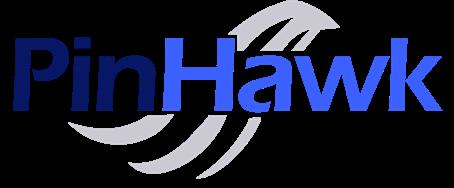

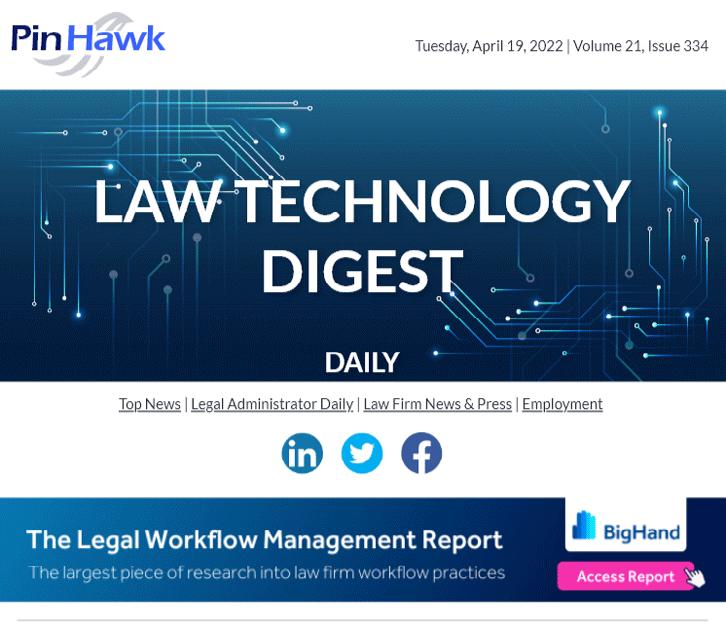

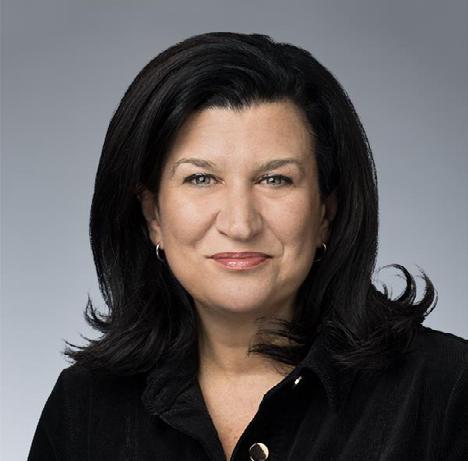
Doreen is Co-Managing Partner of the U.S. at A&O Shearman and a member of the firm’s Executive Committee. She focuses on a wide variety of compensation-related matters, including the design and implementation of retention and compensation plans, disclosure and regulatory compliance, and employment negotiations with senior executives. She has advised both U.S. and non-U.S. Issuers on corporate governance and regulatory requirements relating to compensation and benefits matters and high profile individuals in their employment and severance negotiations. For the past 20 years, Doreen has spearheaded the publication of our annual survey of the compensation-related corporate governance practices of the largest 100 domestic issuers.
Where do you see the legal profession in 10+ years?
I would love to see the legal profession providing a truly hospitable place for women to thrive.
Please include a quote that inspires you. “There may be people with more talent than you, but there is no excuse for anyone to work harder than you do.”
-Derek Jeter
What are your favorite extracurricular activities?
Anyone who knows me knows that I am a huge fan of the New York Yankees. Spending any time in the Bronx in October for the postseason means I am in my happy place!

General Counsel & VP
Maria Laura is a corporate and commercial counsel with more than 30 years’ experience in M&A, negotiations, corporate and commercial affairs. She is a passionate leader with track record in the creation of high performing and interdisciplinary teams, and management with complexity and uncertainty. During the last 17 years she has been working as General Counsel for the Hispanoamerica Region of AB Mauri, a division of Associated British Foods, and member of several Boards of management and directors. In this role, she immerses herself in the ESG world, first with Environmental deep experience in the Region and Governance and Compliance responsibilities.
What advice would you offer your younger self?
Be more confident in yourself. Fight for your dreams.
Kindly share the most influential piece of advice (professional or personal) you have received. Always negotiate with a win/win approach. Listen attentively.
What are your favorite extracurricular activities?
English literature, music, nature, travel, family and friends meetings and art in general.

Laura Richardson, General Counsel and Corporate Secretary at Agiloft, Inc., is a long-time champion of Legal Ops and Legal Tech and an experienced technology and business attorney who enjoys applying her broad background to help companies scale purposefully. She recently helped lead Agiloft through its majority stake acquisition by KKR. Before joining Agiloft, Laura was General Counsel and Corporate Secretary at Osso VR and Senior Counsel at Intel Corporation. Laura is also a former litigator, serving as a Judicial Clerk in the U.S. District Court for the Western District of Tennessee before entering private practice at Sidley Austin in Los Angeles and then at Lane Powell in Portland. She has a JD from the UCLA School of Law and a bachelor’s degree from Kenyon College.
Kindly share the most influential piece of advice (professional or personal) you have received. One of my favorite law school professors gave me this advice: “The perfect is the enemy of the good.” It is simple but incredibly impactful when put into practice.
Where I hope to see it: no more legalese, legal seen as a value driving function, legal professionals using AI tools fluently to extend their impact, increased focus on wellness so that burnout isn’t a common occurrence, the continued improvement of legal-owned enterprise solutions like CLM helping legal teams scale at the speed of the business(es) they support.

In her role at AlixPartners, Lisa co-leads the Americas & Asia regions across all industries, concentrating on the implementation and execution of the firm’s global strategy to drive continued growth. Lisa’s focus is on expanding the diverse suite of services and successfully delivering transformational change to clients worldwide. With over two decades of consulting experience and expertise spanning various industries, Lisa has provided services such as turnaround and restructuring, comprehensive digital and technological transformation, and risk management. As a dedicated advocate for the next generation of business leaders, Lisa contributes to ensuring that upcoming professionals thrive in an environment that values the insights, ideas, and expertise of a diverse and supportive team.
Please describe your proudest individual or team achievement.
I am one of seven children. When my mom was dying, one of her last wishes was that my siblings and I didn’t lose touch. We have managed to get our enormous family together most holidays. It is not always easy, but it is always worth it.
I think, like all professions, the legal profession will be disrupted by technology. We will be seeing repetitive activities become standardized through AI and pressure for efficiency. We will see continued consolidation. We will see deep specialty practices’ fees continue to grow, drive outsize margins and support firm profitability.

American Arbitration AssociationInternational Centre for Dispute Resoution
Bridget M. McCormack is the President and CEO of the American Arbitration Association-International Centre for Dispute Resolution® (AAA-ICDR®), the preeminent global provider of alternative dispute resolution services. She assumed this role in February 2023, brings an extensive background in judicial service, court administration and scholarship and a track record of advocacy for innovation and technology in dispute resolution.
McCormack teaches courses on generative artificial intelligence (AI) and its implications for the legal profession at the University of Pennsylvania Law School and is a founding steering committee member of Duke Law School’s Responsible AI and the Legal Profession initiative.
Where would you see the legal profession in 10+ Years?
AI will change the way law is practiced and commoditized, and there will be new models for delivering legal services that will have a massive impact on what is now a market failure. People and businesses who can’t afford legal services and advice will have options, lawyers will get to focus on the very human skills that matter in problemsolving—empathy, curiosity, creativity, and kindness.
Please include a quote that inspires you.
“Be kind whenever possible. It is always possible.”
-Dalai Lama

Smita is a Senior Counsel at Autodesk where she acts as the lead legal business partner for Artificial Intelligence Platform and co-heads the AI/ML Practice Group. She is heavily involved in generative AI governance, AI development and AI adoption across the company, working with research, product, marketing and sales teams to drive innovation while managing risk.
Smita previously worked as a Hardware Product Counsel at Apple, contributing to product launches for iPad, AirTag and AirPods. She has extensive experience with responding to regulatory inquiries and handling consumer protection issues. Smita also served as outside counsel to technology companies and private equity funds in her roles at Cooley and Kirkland & Ellis.
She holds a law degree from Berkeley Law and serves on the board of the law school. Smita was recently selected as one of 100 Obama Leaders by the Obama Foundation.
Please include a quote that inspires you.
“Keep your face towards the sunshine, and shadows will fall behind you.”
-Walt Whitman
What are your favorite extracurricular activities?
I enjoy English novelists Zadie Smith and P.G. Wodehouse.

As Baker Botts Chief Client Officer, Catherine Zinn oversees various aspects of global growth and strategy including Baker Botts’ sector-focused client sales, marketing, and communications functions. Additionally, Catherine serves as a board member and advisor to various for profit and non-profit companies, as well as an advisor and active scout for various venture funds. During her time at DLA Piper, Orrick and Baker Botts, Catherine led/leads global initiatives and has a proven track record of success personally placing clients and friends of the firm on public and private company boards with an emphasis on diversity. Catherine is a frequent speaker and moderator on topics ranging from top issues facing Public Company Directors and General Counsels, to Leading Intergenerational Teams, and Compelling Storytelling for Entrepreneurs Seeking Funding. Catherine is active in her community, including serving on past President’s National Finance Committees, and on Kamala Harris’ 2024 Presidential Finance Committee. Catherine’s Awards include: NACD Directorship 100 list, Woman of Influence by the Silicon Valley Business Journal, Woman of Achievement by Legal Momentum, Top 100 Women in Law, and Top 50 Women Executives in San Francisco (Women Who Lead). Catherine was a three-sport varsity athlete in college, and later served as a personal trainer, and tennis coach.
What is your proudest achievement?
Interviewing Madeleine Albright in a room full of women I admire.
Please include a quote that inspires you. “Fight for the things you care about.”
- Ruth Bader Ginsburg

Since June 2021, Fatima Naeem has served as the Chief Compliance Officer for HealthPoint, a non-profit Federally Qualified Health Center, and as its General Counsel from 2023-2024. Fatima is also the founding attorney of Naeem Law Firm, PLLC, where she focuses on cyber law, data privacy, healthcare compliance, mediation, arbitration, and guardianships. With a commitment to staying at the forefront of legal developments, she earned her LLM in Cyber Law and Data Privacy from Drexel University in 2023 and became Certified in Healthcare Compliance in 2024. Since graduating from Texas Tech University School of Law in 2015, she has dedicated herself to serving the community, starting with Lone Star Legal Aid before launching her own firm in 2019.
Please describe your proudest individual or team achievement.
One of my proudest achievements came when a direct report told me, “Thank you so much for the mentorship and guidance over the last few years. I have enjoyed working under you, learning from you and you are a great leader.” Receiving this felt like a huge accomplishment. I’ve always believed in paying it forward and knowing that I was able to do so was incredibly rewarding.
What are your favorite extracurricular activities?
One of my favorite things is to hang out with my nieces and nephews and watching the awe on their faces as they learn something new. Nothing can warm my heart more than that.

Colleen Tracy James focuses her practice on intellectual property matters, including pharmaceutical and biotechnology patent litigation and counseling. As a first chair trial lawyer, Colleen has represented many companies with their bet-thecompany cases. Colleen puts a premium on listening to her clients and building consensus among stakeholders so that she can craft strategies that respond directly to the client’s legal and business needs. In 2024, Colleen was shortlisted for Life Science Lawyer of the Year by the Women in Business Law Awards, reflecting the strength and breadth of her practice. Colleen has been recognized by IAM Patent 1000: The World’s Leading Patent Professionals guide, as among one of the “leading lights of the life sciences practice.”
Where would you see the legal profession in 10+ years?
I want to leave the profession better than when I joined it, especially in terms of women’s advancement. I try to be cognizant of the example I am setting, especially in how we treat each other every day. As we open more doors for women through our own advancement and success, we must make sure those doors don’t close behind us, so that we can build a better workplace for the next generation.
What are your favorite extracurricular activities?
I’m drawn to books about physics and the universe, in part for the incredible perspective they offer. I recently finished Before the Big Bang. It’s written by a woman pioneer who explores what we know about our universe and what might have preceded it, all while telling the story of her own rise through a male-dominated profession.
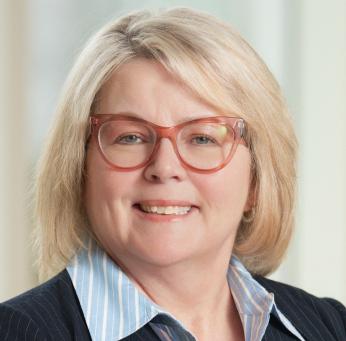
Sharon R. Finney is a seasoned Chief Information Security Officer (CISO) with more than two decades of experience, dedicated to transforming enterprises for cyber resilience. Her passion for integrating security solutions, fostering innovation and enhancing business outcomes has consistently driven her career forward. Sharon has a proven track record of implementing effective policies, solutions, and frameworks to ensure long-term sustainability and drive organizational success. Her expertise extends to talent management, fostering professional growth, and driving continuous learning. Sharon earned a Master of Juris Prudence in Health Law from Loyola University and a Bachelor of Business Administration in Information Security from DeVry University.
Kindly share the most influential piece of advice (professional or personal) you have received?
Earn respect through decisive leadership and clear expectations, while holding others accountable to shared standards. How individuals choose to engage determines the nature of collaboration, but commitment to achieving results must remain steadfast.
Please include a quote that inspires you.
“Everyone has a plan until they get punched in the face.”
-Mike Tyson
This quote reminds me that things do not always go as planned. Always be willing to pivot to a different path. Be ready to rework the plan and execute as you go.

Marla Crawford brings more than 35 years’ expertise to her role as General Counsel of Cimplifi. She is a respected attorney, strategic advisor and thought leader who speaks regularly on legal operations and technology, electronic discovery, and contract analytics. Marla spent 22 years practicing law at the prestigious international firm, Jones Day. She also served as associate general counsel for Goldman Sachs for 11 years where she led the firm’s global e-discovery practice and focused on complex commercial and securities litigation and regulatory investigations. Marla earned a bachelor’s degree in public policy from Duke University and graduated magna cum laude from Boston University, where she earned her Juris Doctor. Marla is a fellow of the College of Law Practice Management, on the advisory boards of CLOC, Legal Week, and CALAMU and a member of CHIEF. She is a Lifetime Achievement Award winner of ALM’s Leaders in Tech Law.
Kindly share the most influential piece of advice (professional or personal) you have received. If you keep going in the right direction, eventually you will get there.
Please include a quote that inspires you. “Life is a banquet and most poor suckers are starving to death!”
-Auntie Mame

Joy Saphla
Joy Saphla brings 30 years of experience in the legal services industry, innovating alongside some of the world’s most respected corporate legal departments and law firms. At Epiq, she is bringing Epiq’s Legal Transformation Services to corporate legal departments and law firms globally. Saphla has made a notable impact in the industry, helping clients transform their business performance through strategic planning and re-imagined approaches leveraging people, processes, technology, and data insights.
Skilled in legal transformation, Saphla has held senior positions in reputable organizations such as Morae, Duff & Phelps, and Huron. A sought-after speaker and recognized thought leader, she has been honored as one of the Top 20 Most Successful Women Leaders by The Corporate Magazine, among the Global 100 Leaders in Legal Strategy and Consulting by Lawdragon, and as the recipient of several ACC Value Champion awards.
Kindly share the most influential piece of advice (professional or personal) you have recieved. Play to your strengths and surround yourself with others who love playing to their strengths.
Where would you see the legal profession in 10+ years?
Fully digitalized and leveraging AI to deliver high quality services faster and cheaper.
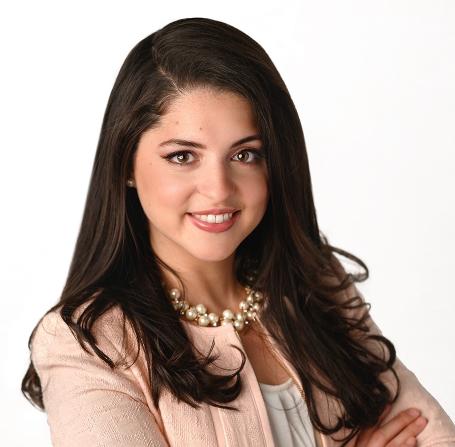
Cristal is Assistant General Counsel at ETS, a global education and talent solutions organization known for its groundbreaking research, learning solutions and trusted assessments such as the TOEFL® and TOEIC® exams, the GRE® and the Praxis®. Cristal oversees domestic and global transactional activities, including acquisitions, member substitutions, asset purchase agreements and related commercial transactions. She also serves as General Counsel on the Institutional Review Board and as a legal advisor on digital accessibility. Cristal advises executive leadership on legal and strategic matters, furthering ETS’s efforts to sustain and expand its impact while advancing its mission to power human progress by promoting skill proficiency, empower upward mobility, and unlock opportunities for everyone, everywhere. Cristal will serve as President-Elect of the Hispanic Bar Association of NJ in November 2024 and is actively involved in the Hispanic National Bar Association as a Deputy Regional President for Region III. She is also a Co-Chair of the SHU Alumni Council G.O.L.D. Committee and a member of the National Association of Women Lawyers General Counsel Institute Planning Committee.
What advice would you offer your younger self?
Embrace change, cultivate your strengths and remain confident. Resilience and adaptability are some of your key strengths!
Kindly share the most influential piece of advice (professional or personal) you have received. View challenges or obstacles as opportunities for growth and mastery of a new area or skillset.
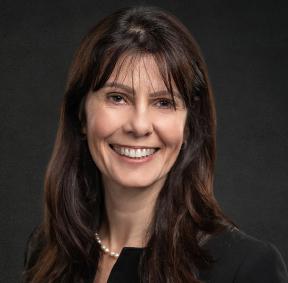
European American Chamber of CommerceCarolinas
Fernanda Ceva (former Sieverling) serves as the Executive Director of the European American Chamber of Commerce-Carolinas (EACC-Carolinas), a nonprofit organization committed to promoting trade and investment between Europe and the United States. As a European lawyer licensed in Germany, Portugal and Brazil, Fernanda brings a wealth of international expertise to her role. She also leads the “US Market Navigator,” a tailored initiative that helps European companies smoothly transition into the U.S. market. Fluent in English, German, Portuguese and intermediate in Spanish, Fernanda’s passion for international collaboration fuels her leadership, furthering EACC-Carolinas’ mission of enhancing crosscontinental trade and investment. Her academic journey began in Brazil, where she completed a five-year law degree. Driven by a thirst for knowledge, she moved to Germany to pursue a two-year Master’s in Economic Law and later complemented her legal expertise with a Bachelor’s in Business Management.
Kindly share the most influential piece of advice (professional or personal) you have received. The most effective way to do it, is to do it.

Owner, President and CFO
From restoring classic cars to serving as an accounting executive and entrepreneur in e-discovery, Sue Pellegrino has challenged the status quo around what a woman leader can be her whole life. Sue has spent her career managing organizations’ finances, ranging from publicly traded companies to regional enterprises and small businesses. Now, she runs Everest Discovery, taking the business to new heights.
With more than 25 years of experience in accounting and business administration, and a decade in e-discovery, Sue Pellegrino is a seasoned leader.
As a female business owner, Sue is a diversity, equity and inclusion champion, proud to devote her time and resources to organizations that advocate for marginalized and underrepresented groups.
What advice would you offer your younger self?
Life’s journey is full of twists and turns, and it’s important to embrace the messy. Success rarely comes on the first attempt. Expect a lot of ups and downs, but don’t feel defeated. Keep pushing forward, take more risks, and remember—the bigger the fear, the greater the reward.
Kindly share the most influential piece of advice (professional or personal) you have received. Go big or go home. It has stuck with me for more than 25 years and every time I want to step back or back down, I look in the mirror say it to myself.

VP Legal Affairs & General Counsel
LaToyia Pierce Frink is responsible for overseeing and developing the legal strategy; compliance procedures and objectives; and insurance coverages affecting FirstService Residential throughout the United States and Canada.
Prior to joining FirstService Residential, she had more than 14 years’ legal experience in various areas including litigation, insurance coverage, real estate, and financial services. She has handled complex and diverse litigation defending companies and professionals who are sued in courts, before regulatory bodies, and in arbitrations across the country. In addition to her litigation experience, she has experience retaining and managing outside counsel in various legal matters throughout the country.
LaToyia holds a J.D. from Southern Methodist University Dedman School of Law, an M.B.A. from the University of Texas at Dallas and a B.S. in Economics from Texas A&M University.
What advice would you offer your younger self?
You cannot control what others do and how others treat you. You can only control yourself and how you react. Believe in yourself even when no one does.
Please include a quote that inspires you.
“The success of every woman should be the inspiration to another. We should raise each other up. Make sure you’re very strong, be extremely kind and above all, humble.”
-Serena Williams
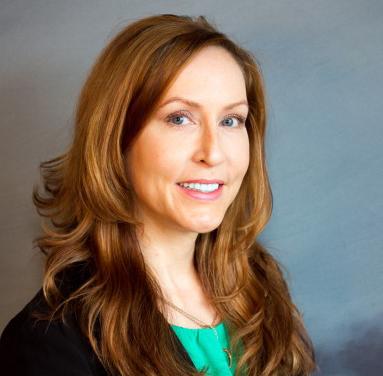
Stephanie Westfield has extensive experience in data privacy, security, artificial intelligence, governance, policy development and implementation, and related contracting strategy. She assists teams with global data privacy and security compliance matters and coordinates stakeholder initiatives across geographies and business units. Over the course of her career, Stephanie has worked at AmLaw and boutique law firms supporting commercial initiatives and broad compliance requirements. Ms. Westfield is a Certified Information Privacy Professional (CIPP/US), as certified by the International Association of Privacy Professionals (IAPP). She has presented and written extensively on the topics of data privacy and emerging technologies within the employment space.
Please include a quote that inspires you. “Success usually comes to those who are too busy to be looking for it.”
- Henry David Thoreau
What advice would you offer your younger self?
A legal career is a marathon, not a sprint – please don’t worry if you don’t see immediate changes or improvements; sometimes the change is so gradual you can only recognize it after it fully comes to fruition.

Lynn joined General Motors in 1998. She is responsible for drafting insurance terms and conditions for all commercial contracts globally. Lynn manages the placement and administration of management liability programs and associated claims activities. Lynn is the Risk Manager for Ultium Cells LLC, a joint venture between General Motors and LG Chem, and is responsible for the placement of all insurance programs for Ultium.
Prior to joining GM, Lynn practiced law in the areas of insurance and product liability. Lynn received a Bachelor of Arts degree in Political Science from Michigan State University and a Juris Doctorate from Michigan State University - Detroit College of Law. Lynn also holds an ARM and CPCU from the American Institute for Chartered Property and Casualty Underwriters.
Kindly share the most influential piece of advice (professional or personal) you have received. Know that you belong. Your voice and experience is as important as the person standing next to you. Speak up because if you do not, your voice will not be heard.
What advice would you offer your younger self?
Believe in yourself and your abilities.

Eunice Choi is a partner in Goodwin’s Technology group and Private Investment Funds practice. She focuses her practice on the formation and operation of private equity and hedge funds, primarily venture capital funds and alternative investment funds and associated operational and regulatory activities.
Eunice also has extensive experience in organizing domestic and offshore fund entities for both fund establishment and the conduct of investment activities, preparing investment fund offering documents, negotiating partnership agreements and side letters with investors, structuring investment transaction vehicles, and documenting investment subscription processes. She also counsels investment advisers with regard to their regulatory compliance matters.
What advice would you offer your younger self?
Don’t predetermine your outcome. The first hurdles you have to overcome are the limitations you put on yourself. You can be CEO, Partner, President, the tallest tree in the forest-believe it.
What are your favorite extracurricular activities?
My favorite activities revolve around being in a community with others, from the BTS Army to RWB Second Harvest to the Yale Club of Silicon Valley. IRL wins every time.
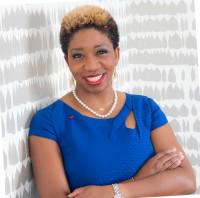
Shonn Evans Brown is a strategic business leader known for her action-based, results-oriented approach. A trusted go-to and practical business advisor, she currently serves as Vice President, General Counsel & Chief Compliance Officer of Heidelberg Materials North America, a leading supplier of cement, aggregates, ready mixed concrete, and asphalt with more than 450 locations and approximately 9,000 employees. Before her current role, Shonn made her mark in the consumer goods industry through impactful leadership of a global litigation team and as the inaugural lawyer supporting the global sustainability organization. Shonn’s journey to the C-Suite has as a foundation over two decades as an experienced trial lawyer where she honed the ability to digest volumes of data to solve complex problems. Shonn is an advocate for empowering and propelling women and people of color to advance in leadership and business.
What advice would you offer your younger self?
Girl…SLOW DOWN! I can appreciate the gift of time, reflection and deliberative action.
Kindly share the most influential piece of advice (professional or personal) you have received. A simple question: “But what do you want to gain from this experience?” My response: “Reflection and deliberative action.”
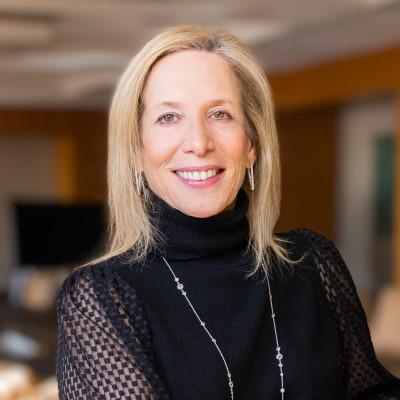
Belinda Schwartz was named Herrick’s Executive Chair in March 2023 and has been a member of the firm’s Executive Committee since 2017. With female leaders accounting for approximately 10 percent of AmLaw 200 chairs and managing partners, Belinda has become one of the few women in the nation currently leading a major law firm. Additionally, she has led Herrick’s Real Estate Department since 2014 and is a 30+ year veteran of New York City’s commercial real estate market. She is a leader and mentor for 65+ attorneys and urban planners (23 of which are women) and one of the only women in the country to lead a major commercial real estate practice.
What is the most influential piece of advice (professional or personal) you have received. Having balance in your life is not a realistic aspiration. You have to choose, sometimes every day, where your focus will be. Once I took that notion out of my head I felt less anxiety.
Please describe your proudest individual or team achievement.
I’m very proud of the culture at Herrick and the part I play in that. I was excited and proud when I first became a partner at a law firm as it was something I had worked towards for so long. But as I continued to grow as a leader, I came to better understand that what really mattered to me was being able to work with an amazing team of lawyers and other business associates.

Vice President & Associate General Counsel
Casey Nakata leads the Trademark, Copyright & Marketing Legal team in the IP/Legal department of Hewlett Packard Enterprise Company (HPE). Prior to her current role, she held a similar role at Hewlett-Packard Company (HP), and has worn several hats at HP/HPE over the years.
In particular, she is very proud to have led Hewlett-Packard Company’s restructuring of its brand and trademarks when the company separated into Hewlett Packard Enterprise Company and HP Inc. in 2015.
Prior to joining HP, Casey practiced trademark and IP transactions law at Fross Zelnick Lehrman & Zissu and at Ropes & Gray, both in New York City. Casey currently lives in Portland, Oregon.

Melina Scotto helps executives think more like CISOs. She is a Cybersecurity leader with 28 years in the Transportation, Federal Contracting, Medical, and Hospitality sectors.
Melina began her IT career at CTAA in Transportation IT as a Database Manager/IT Manager where she configured and maintained local DB and network security. She published and spoke on network optimization and security for state transportation shops.
In 2004, Melina moved to global health IT with John Snow Inc. where she worked primarily in network security administration. She configured PKI for linux servers and managed Cisco VoIP systems for a nationwide telecommunications project. Melina continued her work in healthcare at GWU Medical Faculty Associates in 2009 as Network Engineer focused on technical requirements of HIPAA Security Rule and HITECH regulations in a dynamic virtual server environment.
In 2022, Melina moved to a global Fortune 200 cybersecurity role as VP & CISO. Securing micro services, applications, and infrastructure across diverse technology stacks and third party strategic partnerships.
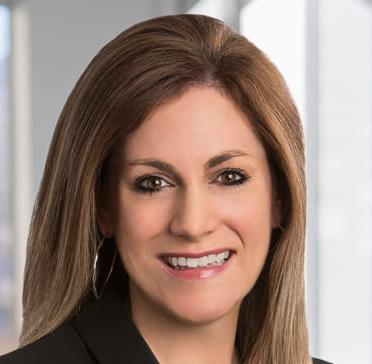
Elizabeth Donley is a pioneering force in the world of international corporate law, with more than 25 years of experience specializing in U.S. and cross-border mergers and acquisitions. As a corporate partner based in Washington, D.C., she has carved out a niche advising global corporations and Fortune 500 companies on complex, high-stakes transactions across a wide range of industries, including aerospace, defense, automotive, manufacturing and real estate. Known for her ability to seamlessly bridge cultural and commercial divides, Elizabeth has successfully guided clients through transactions totaling over $55 billion, even amid volatile market conditions. As co-leader of Hogan Lovells’ U.S. M&A Group, Elizabeth has played an instrumental role in elevating the firm’s practice to the highest tier of rankings for corporate and M&A work.
If I could offer advice to my younger self, it would be to stay resilient, even when the road seems uncertain, difficult, or even uncharted.
When it comes to unwinding after a long work week, I spend every moment I can with my family and friends. I live in Washington, D.C. with my husband and our two teenage daughters, and we love to spend time as a family.

Sarah is the Global Co-Chair of the ESG practice at Latham & Watkins. Before joining Latham, Sarah was the mind behind the creation of the first cross-functional ESG group at a U.S.-based global law firm, where she also served as the firm’s dedicated corporate governance expert.
Sarah has spent over a decade working with organizations in navigating their relationships with key stakeholders. She works with boards and management on their approaches to corporate governance, compliance and disclosure.
Sarah is a key thought leader in U.S. corporate governance, including on matters relating to climate change, human rights and corporate culture.
What advice would you offer your younger self? Kindness, courage and self-care will be your most important assets. If you commit to kindness, cultivate courage and take the time to nurture yourself and your spirit, nothing can harm you and everything that should be yours, will be.
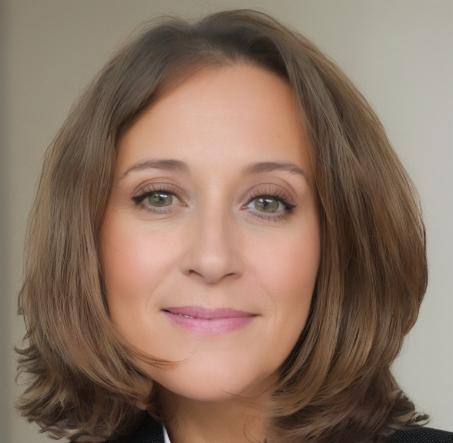
Karen Meyer is the Senior Vice President of Client Success at LegalSifter, a leading provider of AI-powered contract operations solutions dedicated to curing contract pain. With an impressive track record in driving operational excellence and scaling businesses, Karen brings a wealth of leadership experience to the organization. Prior to joining LegalSifter, she held multiple executive positions in the technology sector, including most recently as CEO at Contract Logix, where she focused on spearheading growth strategies, improving customer experiences, and delivering innovative solutions.
What advice would you offer your younger self?
Start finding your voice earlier. You’ll gain confidence, and you will also learn how to filter as you grow. Speak with purpose and intention.
Please describe your proudest individual or team achievement.
One of my proudest achievements when I was CEO at Contract Logix was guiding the multiple product transformations – collaborating with clients and our internal teams to first get onto a single platform, and then turn on the juice of creativity with AI.

Kara Handzlik is a seasoned legal professional with extensive experience in both the public and private sectors. She is licensed to practice law by the New York State Bar. Currently, Kara serves as the Senior Associate General Counsel & Legal Operations Manager at M&T Bank in Buffalo, NY., In this role, she provides primary legal support for Cybersecurity, Sustainability, Corporate Security and Corporate Insurance. She also manages the Office of the Chief Legal Officer where she leads the Legal Division’s Operations team. Additionally, Kara partners with the Finance Department to develop the Legal Division’s annual plan and manage the budget, ensuring that legal resources are aligned with business needs. She also collaborates with the Human Resources Department on staffing matters.
Kindly share the most influential piece of advice (professional or personal) you have recieved. Always find the lesson in a situation and then learn from it. Even when something at work or at home “goes wrong,” the lesson makes the experience worth it.
Please describe your proudest individual or team achievement.
Working with our CLO, we set up a mentorship program between M&T Bank and Buffalo State University. We recently kicked off the 5th year of this endeavor and seeing the benefits that the program has brought to the students, and the employees, brings me great joy.
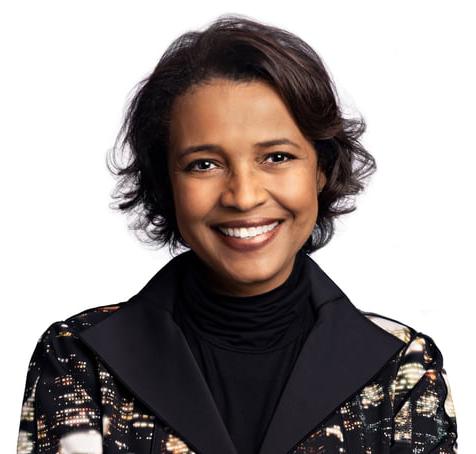
Tracy Preston joined Macy’s, Inc. in January 2024 as chief legal officer and corporate secretary. She is responsible for a broad range of legal affairs, litigation and compliance for the organization, including employment, real estate, credit, commercial and regulatory compliance, enterprise security and internal audit. Additionally, she serves as the legal advisor to senior leadership and the board of directors.
Preston has three decades of experience counseling global apparel and retail companies on strategic, business, operational and tactical matters. Prior to joining Macy’s, Inc., she served as chief compliance officer, chief legal officer and corporate secretary of HanesBrands Inc. Before that, she held the same titles at Neiman Marcus Group. Earlier in her career, she held several key legal positions at Levi Strauss & Co. Before transitioning inhouse, she was a partner at Orrick and worked at other law firms such as Latham & Watkins; Sedgwick, Detert, Moran & Arnold; and Baker & McKenzie.
Preston holds a J.D. from the University of Virginia and a bachelor’s degree in international relations from Georgetown University.

Marsh McLennan
Farrah Pepper created and leads the company’s Legal Innovation & Technology (LIT) team, including the LIT Lab (legal innovation lab) and the legal data discovery program. Farrah is a sought-after speaker and educator in the legal community, as well as an active participant in leading industry advisory boards and organizations. Notably, Farrah is Vice President and a member of the Board of Directors of the Corporate Legal Operations Consortium (CLOC). She is a fellow and a member of the Board of Directors of the College of Law Practice Management. Farrah is a founding member of Legal Data Intelligence (LDI), which launched in May 2024.
Kindly share the most influential piece of advice (professional or personal) you have receieved.
“Twenty years from now, you will be more disappointed by the things you didn’t do than the ones you did.” This advice came from a free postcard in a grimy record shop in Dublin, Ireland. It hit me hard then and now, more than twenty years later, has proven its wisdom time and again. I still have that postcard framed at home.
are your favorite extracurricular activities?
Proudly raising a household of Swifties (personally, I’m in my Innovation Era) and Star Wars superfans.

Persia currently oversees the Compliance Programs for Members Trust Company, an OCC-chartered trust and investment firm as well as MTC Wealth Management, an SEC-registered investment advisor. She earned her Bachelor’s Degree in International Studies with a concentration in Conflict Resolution in the Middle East and North Africa. Having earned her JD at the University of Miami School of Law, Persia’s previous role was as Chief Compliance Officer, Treasurer, and Secretary to the Board of Directors at a global institutional emerging markets fund whose parent company was based in Mumbai. Prior to that role, she served as a Compliance Specialist for Raymond James & Associates where she passed her FINRA Series 7, 24, 66, and SIE Examination. Persia sits on the Board of Governors and Programming Committee of the Institute of Internal Auditors, West Florida Chapter.
What advice would you offer your younger self?
Embrace your authentic self, it will pay dividends in your future.
Where would you see the legal profession in 10+ years?
“A more publicly accessible field of knowledge...” that will be more “present” for non-legal professionals’ daily lives in all industries and roles.
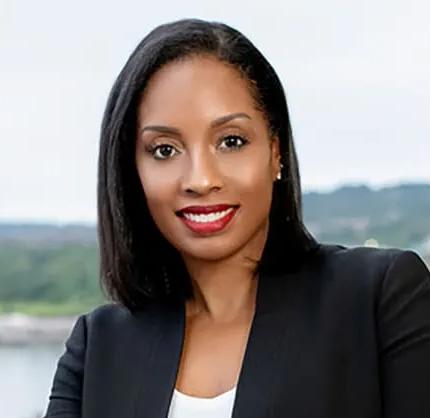
Daphne Turpin Forbes serves as an Associate General Counsel at Microsoft, bringing more than twenty years of in-house legal expertise to her role. She is the lead attorney for a $16 billion segment within the company’s Health & Public Sector Industries, which encompasses Health & Life Sciences, Federal, State and Local Government and Education sectors. In addition to Microsoft, her professional journey includes experience at corporations such as Discovery Communications, ACS State & Local Solutions (formerly Lockheed Martin IMS), Hyatt Hotels and General Motors. Daphne is a DEI champion, and actively engages in diversity, equity and inclusion efforts both within Microsoft and through external organizations. Daphne holds leadership positions on various boards and advisory committees in the Washington, DC Metropolitan area, and has previously served as chair and county commissioner of the Liquor Board in Prince George’s County, Maryland, and served as an adjunct professor at Howard University’s law school. She is active in bar associations and is part of the Leadership Greater Washington 2025 Cohort.
Please include a quote that inspires you.
“I’ve learned that people will forget what you said, people will forget what you did, but they will never forget how you made them feel.”
-Maya Angelou
Please describe your proudest individual or team achievement.
Receiving the title of “Mom.”

Katherine Knight is the Senior Vice President, Chief Legal and Administrative Officer for Mitsubishi Motors in the U.S. She is the first person to hold this unique, multi-disciplinary role, which she describes as simply one of looking for continuous improvement, whether in operations, branding, compliance, governance, culture or wherever else it may be found. Aside from CLO and CAO, Katherine holds multiple “C” roles simultaneously, including CHRO, CCO, CRO and Corporate Secretary to the Board of Directors. She leads a cross-functional department comprised of the Legal, Human Resources, Government & Industry Relations, Risk Management, Internal Audit, Facilities & Sustainability, Community Relations & Charitable Giving, Governance and Compliance functions. Although originally a lawyer by trade, Katherine is a strong advocate for seeking opportunity, taking risks, trying on new hats and finding your calling and hopes to inspire other women (and everyone) to do the same.
What advice would you offer your younger self? Stop it with the second-guessing.
Please include a quote that inspires you. “The impediment to action advances action. What stands in the way becomes the way.”
-Marcus Aurelius
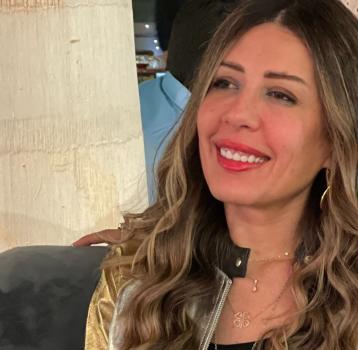
Sarah Nashaat currently holds the position of General Counsel at Gemini Investments Holding. Previously, she held the same position at Orascom Financial Holding and at Suez Cement Group of Companies, and before that at Eagle Capital for Financial Investments. She also worked as a Legal Affairs Manager at Orascom Construction Industries.
Sarah Nashaat graduated from the Faculty of Law, Alexandria University, English Section, and she is a licensed Anti-Money Laundering Compliance Officer from the GAFM Global Academy of Finance & Management.
Kindly share the most influential piece of advice (professional or personal) you have received.
You have to learn to say “no” without feeling guilty and to say “I don’t know” without feeling ashamed.
Please include a quote that inspires you.
“I can do things you cannot, you can do things I cannot, together we can do great things.”
-Mother Teresa

Lindsey serves as Senior Associate General Counsel for the Pechanga Band of Indians, a sovereign, federallyrecognized Indian tribe with a dynamic Tribal Government and diverse business operations. Lindsey is an enrolled tribal member at Pechanga, and has dedicated her legal career to advancing the interests of Pechanga and Indian Country as a whole, providing legal counsel across multiple sectors.
In her role, Lindsey provides legal advice and counsel to Pechanga’s Tribal Government, regulatory gaming commission, and business enterprises. Her practice includes advocating for the Tribe and its businesses through contract negotiations, navigating regulatory matters related to the Tribe’s gaming operation to ensure compliance with federal law and the Tribe’s tribal-state gaming compact, and drafting and advising on legal matters concerning tribal law and governance.
What advice would you offer your younger self?
Always be willing to learn, adapt and push beyond your comfort zone. Some of the most meaningful growth happens in times of discomfort and uncertainty.
Where would you see the legal profession in 10+ years?
Long-standing principles of federal Indian law, including fundamental questions about the governmental and political status of tribes, are being subjected to renewed scrutiny and judicial re-interpretation. I have no doubt that the legal landscape will continue to change.
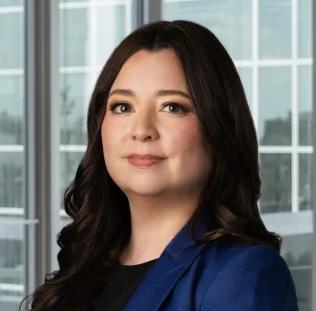
Kerry Potter McCormick advises on the breadth of issues that can arise during a product’s life cycle, assisting managers of private equity funds, hedge funds, credit funds, real estate funds and funds-of-funds. Her guidance includes negotiating with seed and other early investors and startup managers to fund restructurings and winddowns. Kerry also works with institutional investors in their investments in these products. Prior to returning to private practice, Kerry served as the private funds and products counsel for Apollo Global Management, L.P. She also worked in the investment funds group of a global law firm.
What advice would you offer your younger self?
Being your authentic self will lead to the right success for you.
Please describe your proudest individual or team achievement.
My proudest individual achievement is living the life I dreamed of as a child (the “future occupation” I listed in my elementary school yearbook was “business woman or lawyer” – and now I’m both!). My proudest team achievement is supporting the advancement of a colleague or another woman in the industry and seeing their dreams for themselves come true, too.
Kindly share the most influential piece of advice (professional or personal) you have recieved. Ask for what you want.
Please include a quote that inspires you. “Women belong in all places where decisions are being made.”
-Ruth Bader Ginsburg
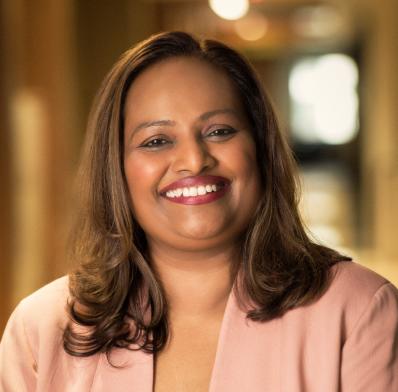
During her nearly 10 years as an M&A attorney at a prestigious AmLaw 100 law firm, Gummaregula earned a reputation for helping parties across the table find common ground to get a deal done. She then moved in-house to a Fortune 500 company where she was on the succession path to key leadership roles. Seeing an unmet need in the legal ecosystem, she chose to explore a new approach and took the risk of co-launching a startup designed to be a disrupter in the legal industry. In 2004, Gummaregula co-founded QuisLex, carving a unique path as a female legal technology entrepreneur and COO, guiding the company to ongoing growth and success. Under her steady leadership, the independently owned QuisLex has grown significantly, with multiple locations in the United States and offices in Germany, India and the Netherlands, and has earned a reputation among clients for its valued expertise and exceptional quality.
What advice would you offer your younger self?
Life is a long game!
Please describe your proudest individual or team achievement.
I am most proud of the fact that every QuisLexian lives and breathes these three core values: Customer delight, continuous improvement, and an in-dominatable spirit of “if there is a way to do this, we will figure it out.”

VP, Deputy General Counsel & Assistant Corporate Secretary Scoular
Jennifer works closely with the Chief Legal Officer, CEO, and Senior Leadership Team on a variety of initiatives across Scoular’s businesses. Jennifer serves as the legal business partner to the company’s freeze-dried pet food manufacturing business, and the derivative risk business unit. She also leads Scoular’s global labor and employment, compliance and ethics, litigation and dispute resolution, and regulatory legal practices, and previously led the Company’s sustainability team. As Assistant Corporate Secretary Jennifer provides support to Scoular’s Board of Directors and other corporate governance matters. She also serves as a Trustee on the Scoular Foundation and manages the Foundation board. Prior to joining The Scoular Company, Jennifer held various in-house counsel roles with both privately held and publicly traded organizations, including ConAgra Brands, and practiced in the labor and employment group of a multi-service law firm focusing on labor and employment, immigration, and litigation matters.
Kindly share the most influential piece of advice (professional or personal) you have received. “Don’t be creepy, and make it happen.” Showing up authentically and with integrity and then approaching your life and career with a growth orientation and problem-solving mindset are critical keys to success.
What advice would you offer your younger self?
It is okay to be bold and take on calculated risk. Some of the most powerful and life changing learnings come from failure.
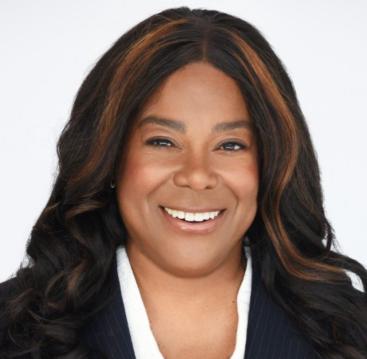
Logan VP, General Counsel and Corporate Secretary Shutterfly
Adrienne’s business acumen has been instrumental throughout her career, enabling her to leverage her JD and MBA to provide creative and efficient solutions while operating as a true business partner to all levels of the organization. She has advised global Fortune 100, privately held, and start-up companies in a range of industries (finance, consumer goods, and luxury sector) across corporate governance, commercial strategy, risk management, supply chain, digital and data privacy compliance, intellectual property, M&A, litigation, and commercial contracts.
Prior to joining Shutterfly, Adrienne served as Vice President and Global General Counsel at Vans, the largest division ($5 billion) of the VF Corporation. She also served in legal leadership roles at Pacific Partners, Kenneth Cole, Godiva, Merrill Lynch, and Avon.
Kindly share the most influential piece of advice (professional or personal) you have received?
It is from my Mom: It is not what you call me, it is what I answer to. Have your own internal compass of who we are to sustain us when people sought to redefine us.
What advice would you offer your younger self? Things always work out.
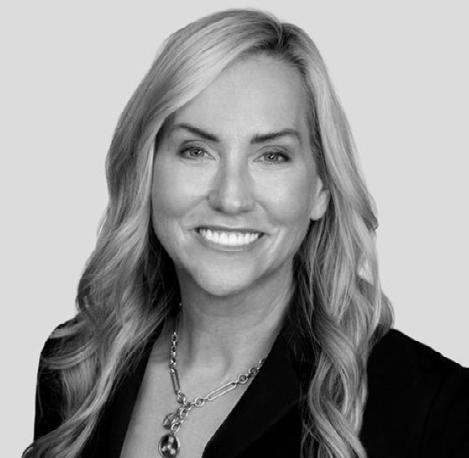
Heather N. Bennett is General Counsel & Chief Compliance Officer of Starwood Property Trust. In this role, Ms. Bennett is responsible for the day-to-day legal and compliance operations of the business.
Prior to becoming the General Counsel of Starwood Property Trust, Ms. Bennett served as General Counsel of the Real Estate Investing & Servicing segment of the company. In this role, Ms. Bennett served as chief legal and compliance officer for the company’s wholly-owned special servicer, LNR Partners, and was responsible for legal oversight of Starwood Property Trust’s investment in commercial mortgage-backed securities, its conduit lending and subsequent securitization activities as well as its real estate investment platform. In addition, Ms. Bennett provided legal oversight and litigation support for the Lending and Property segments of the company.
Prior to joining LNR in 2005, Ms. Bennett was in private practice specializing in complex commercial, corporate and real estate litigation.
Ms. Bennett holds a B.A. degree from the University Florida and a J.D. degree from Pepperdine University School of Law.
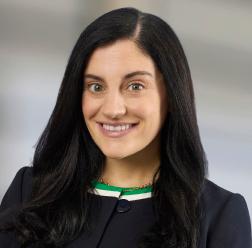
Beth Newton is a partner in Sullivan & Cromwell’s Litigation Group and co-head of the Firm’s Women’s Initiative Committee. Her practice comprises complex commercial litigation, regulatory and enforcement matters and internal investigations. Beth has represented global financial institutions and other leading companies in litigation involving mergers and acquisitions, securities claims, bank regulatory matters, contract disputes and the structuring of partnerships and other business organizations. She also has represented corporate and individual clients in regulatory matters before the U.S. Securities and Exchange Commission, the U.S. Department of Justice, the U.S. Commodity Futures Trading Commission and federal and state banking regulators. Following Beth’s promotion to partner in January 2020, she became a Co-Chair of the WIC. In this capacity, she leads the creation of professional development programming as well as networking and mentoring opportunities that support the Firm’s ongoing efforts to develop women lawyers. The WIC is a critical component of the Firm’s investment in women lawyers, offering programming and events designed to foster connections among S&C women and facilitate professional development.
Kindly share the most influential piece of advice (professional or personal) you have received. As you progress in your career, you should take risks and encounter nerve-wracking situations. That simple point helped me shift into a growth mindset and overcome the fear that can accompany professional progress.

Vera Golosker is Associate Principal Counsel in Unscripted, NatGeo & Promotions at The Walt Disney Company where she handles legal affairs on programs exhibited on ABC, Disney+, Hulu and other platforms. Vera drafts and reviews various agreements and collaborates with teams such as intellectual property, standards and practices, labor, risk, privacy and production safety to help clients continue exhibiting and producing compelling programming. Before joining Disney in 2021, Vera was Senior Counsel at MetroGoldwyn-Mayer, where she served as the production attorney on the television program “Shark Tank.”
Please describe your proudest individual or team achievement.
My proudest achievement is overcoming breast cancer in 2020. With the support of my amazing husband (and many talented doctors), I turned a life threatening obstacle into a springboard of gratitude. I now connect with cancer patients to help share resources and offer support.
Kindly share the most influential piece of advice (profession or personal) you have received. The expert is someone who has made all of the mistakes. Mistakes will be memorable. So instead of punishing yourself, think of them as a valuable gift for a lifelong lesson learned.
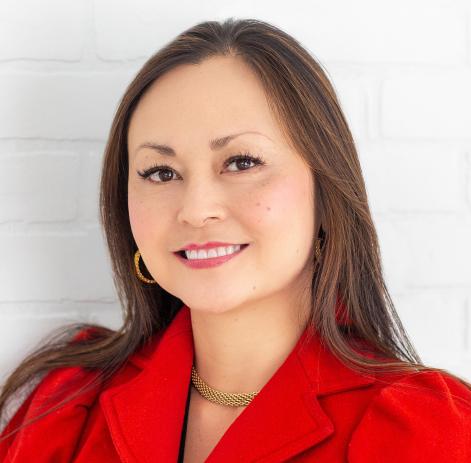
Sarah Hammer is Executive Director at the Wharton School. She leads strategic initiatives across Wharton Finance and is Founder and CEO of Wharton Cypher Accelerator. Hammer is also Adjunct Professor at the University of Pennsylvania Law School and Affiliated Scholar at the Penn Program on Regulation.
At the U.S. Treasury, Hammer led the cross-functional team conducting a comprehensive report on the financial regulatory framework. Hammer also served on the Securities Investor Protection Corporation (SIPC) board and was principal staff to the Treasury Secretary for the Pension Benefit Guaranty Corporation (PBGC). Hammer has held leadership positions throughout financial services in general management, portfolio management, trading, marketing, research, and analytics at the Vanguard Group, PIMCO, JP Morgan Chase, BlackRock and Tudor Investments. Her legal experience includes assignments in both federal court and state supreme court.
Hammer earned a JD from the University of Pennsylvania Law School, an MBA from the Wharton School, and a Master of Studies from Oxford University. Awards and honors include the American Law Institute, a Harry S. Truman Scholar, the American Inn of Court, Pennsylvania City & State AAPI Power 100 (2023), TIME Best Crypto Course (2022), and Special Recognition from the Secretary General of the ITU at the UN.

Hazel-Ann Mayers is General Counsel and Corporate Secretary at Turnitin, LLC, a leading global education technology company. Hazel manages all legal affairs for the company and is also an Adjunct Professor of Law at the Fordham University Law School. Prior to her role at Turnitin, Hazel was CBS Corporation’s EVP, Chief Business Ethics and Compliance Officer. Before that, Hazel was EVP and General Counsel at global publisher Simon and Schuster. Hazel began her legal career at Willkie Farr & Gallagher LLP and Proskauer Rose LLP. Hazel is active in several professional associations, including as a Director of the Foundation for City College. She has been honored with the Caribbean Impact Award by Schneps Media’s Caribbean Life newspaper and the Corporate Counsel National Women in Law Award in the Thought Leadership Category.
Please describe your proudest individual or team achievement.
For 25 years, Turnitin has been at the forefront of fostering academic integrity by safeguarding the value of writing. I am proud of our legal team’s contributions to Turnitin’s work to positively harness AI, whether in streamlining instructors’ abilities to provide feedback to students, helping students to provide their best work or providing invaluable insights regarding AI use.
What advice would you offer your younger self?
Trust your instincts and have confidence in taking professional risks. All will be fine.
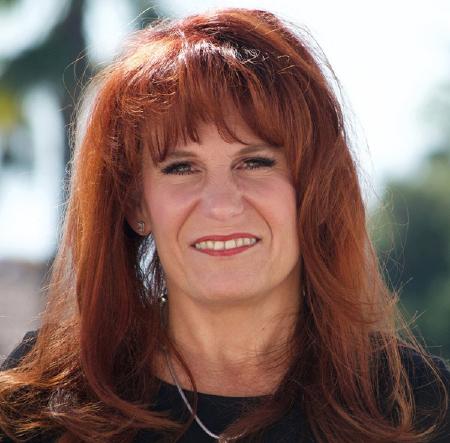
Laura is VP, Deputy General Counsel, Global Head of Litigation and Legal Operations and Chief of Staff to the General Counsel.
Prior to joining Unisys, Laura held several in-house positions at IQVIA, Pfizer and Texaco. At IQVIA, Laura had responsibility for global legal operations, cybersecurity and data breach matters and global litigation and investigations. At Pfizer, Laura started the first formal global corporate electronic discovery practice and worked on the P3 law firm partnering initiative in addition to handling a full litigation and investigation docket.
She was recognized by the National Law Journal and Corporate Counsel Magazine as an innovator and trailblazer for her work at Pfizer and named an AI Visionary for her innovative use of artificial intelligence in litigation. She is the inventor on U.S. Patent No. 8,560,378 for the System and Method of Reviewing and Producing Documents.
What are your favorite books, professional sports, entertainment and/or extracurricular activities?
As some people know, I grew up in a racing family - my family owned race cars, and when my parents passed, I kept the team going for several years.
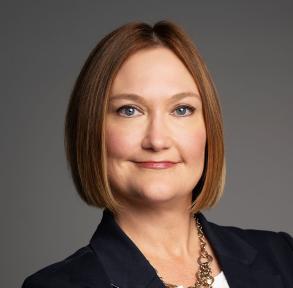
Renee Meisel is a tenured executive with leadership experience in both legal and operations coupled with a passion for business growth and scalability. As Chief Executive Officer of UnitedLex, she leads the legal professional services company on its mission to deliver excellence to its global client base. Before taking the role of CEO, Renee served as the company’s EVP and General Counsel, where she led the company’s global legal functions, which included commercial transactions, dispute resolution, compliance and privacy, and risk management. In 2023, Renee launched PracticLaw where she provided General Counsel and Chief Operating Officer services to small and medium business and advised larger companies on global data privacy issues, data governance, and data security. Renee received her J.D. from the University of Texas at Austin School of Law and achieved dual bachelor’s degrees from the University of Oklahoma in French & English Literature. She is a native of Broken Arrow, Oklahoma, and proud member of the Choctaw Nation of Oklahoma.
Kindly share the most influential piece of advice (professional or personal) you have received?
A mentor of mine had a sage piece of advice, and that is to live fearlessly. And I’ve taken that to heart. Whether it’s in my personal or professional life, I don’t make choices from a place of fear. Rather, I look for the growth and progress potential in any situation.
Please include a quote that inspires you. “Be the change you want to see in the world.”
-Joseph Ranseth

As President of Utah Royals FC, Michelle was the architect of the Utah NWSL expansion franchise, drafting and negotiating the Club’s expansion option and resulting transaction to bring professional women’s soccer to Utah. Since the Club’s launch, Michelle has been responsible for overseeing the overall day-to-day operations of Utah Royals FC to provide a first-class experience for players and fans. She led the development of the Club’s new crest and accompanying mission by hiring all key front office business and sporting positions, engaging with the community at a grassroots level, and building foundational Club commercial partnerships. Before taking up the President role, Michelle served as Real Salt Lake’s General Counsel for more than three years. As General Counsel she oversaw the sale of the team, spearheaded the inaugural 2020 Challenge Cup, and drafted marquee RSL and Utah Royals deals, such as stadium naming rights and jersey front & sleeve, medical provider, ticketing provider and other landmark Club transactions.
I hope that the profession continues to make strides in fostering an environment that is supportive of mothers having babies and raising young children.
Please describe your proudest individual or team achievement.
Being the lawyer who negotiated the Utah Expansion Option to bring an NWSL team back to Utah, despite the chaos of the team being taken away, and then negotiating the exercise of that option, has been my proudest achievement.

Anum Pervaiz is Vice President and Assistant General Counsel at the Van Metre Companies, where she provides legal and strategic support across the company’s operations in land acquisition, homebuilding and sales, development, retail and commercial leasing. As a trusted advisor to company leadership, she plays a key role in navigating complex legal challenges and shaping the company’s future.
Prior to her current role, Anum practiced at Venable LLP, a top national law firm, where she developed extensive expertise in real estate law and complex transactions. She graduated Magna Cum Laude from George Mason University with a Juris Doctorate and has remained deeply connected to the Northern Virginia area, where she was born and raised.
In addition to her legal work, Anum is committed to promoting diversity and inclusion within the legal profession, the real estate industry, and the broader community. She served as the inaugural President of Van Metre’s Diversity and Inclusion Council, where she continues to provide leadership. She also served on the Board of Directors for Little Free Library, a nonprofit organization dedicated to promoting literacy and building community through book-sharing, with a particular focus on providing access to diverse and inclusive literature.
Outside of her professional endeavors, she enjoys traveling and spending time with her husband and two children in Northern Virginia.
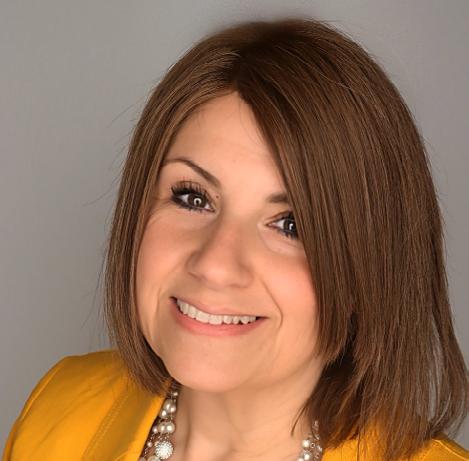
Kim Wolfe is a dynamic business leader who invests deeply in the personal and professional growth of those around her. With a leadership style grounded in inspiring excellence, Kim motivates by enabling her team’s superpowers, building a shared vision and consistently acting with empathy. Kim’s story is one of resilience and determination, rooted in her family’s journey to America through Ellis Island. As the first in her family to go to college, Kim earned a BS in Quantitative Analysis from St. John’s University and an MBA from the Wharton School of Business. Carrying forward her father’s problem-solving mindset, her mother’s creativity and her entrepreneurial spirit, Kim has enjoyed a successful career in banking at firms including Deutsche Bank, Societe Generale, Barclays, and most recently, Wells Fargo, where she’s led and transformed teams, services and processes in Operations, Data, Credit, Risk, Sales and Legal.
Kindly share the most influential piece of advice (professional or personal) you have received. Spend more time leading and less time doing!
What advice would you offer your younger self?
Embrace and be grateful for the tough stuff. Although it’s hard when it’s happening, it’s going to turn you into a strong woman with an abundance of heart and empathy for others. You will achieve more than you ever dreamed possible.
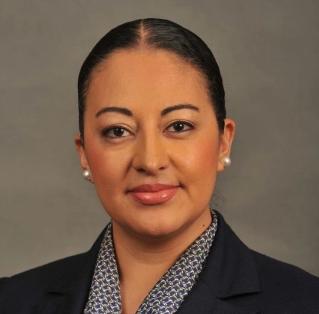
Veronica Canton represents businesses and individuals in all aspects of data privacy with a focus on the defense of claims related to data security breaches and other cyber-based exposures. Veronica provides strategic legal counsel in a broad range of data privacy and cybersecurity matters and brings a wealth of experience handling cybersecurity incidents and ensuring compliance with state and federal regulations. She prides herself on having a comprehensive understanding of the legal intricacies involved in data privacy and cybersecurity.
Prior to joining Wilson Elser, Veronica was a senior legal counsel at an AI company where she gained valuable experience leading efforts to maintain global data privacy standards, advising on managing personal information and negotiating data protection–related contract clauses in commercial technology and procurement transactions.
Veronica has worked at various firms where she counseled clients on domestic and global data privacy laws, conducted risk analysis in M&A transactions and supported cyber breach investigations. Her recognition by LATAM Women in Cybersecurity and her role as an advisory board member for Latinas in Cyber highlight her commitment to advancing diversity in cybersecurity.

Una Kang serves as head of global litigation and cybersecurity counsel at Wolters Kluwer, a leading provider of software and expert solutions. With over 20 years of experience, Una’s responsibilities include overseeing the company’s worldwide litigation strategy, shaping the company’s legal policies and processes around cybersecurity, and helping the company navigate emerging risks and opportunities. She also chairs the company’s Technology Compliance and Regulatory Change Taskforce and serves as the legal advisor to the Technology Security Council and Corporate Incident Management Team.
Prior to joining Wolters Kluwer, Una served as Assistant General Counsel for a financial services company, where she managed complex cross-border disputes, cybersecurity regulatory compliance, and security and data breach response.
What advice would you offer your younger self?
Embrace change and trying new things!
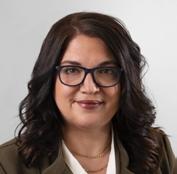







RICHARD TORRENZANO THE TORRENZANO GROUP
Wall Street is at a crossroads.
The sacred opening and closing bells of the New York Stock Exchange (NYSE) seem under scrutiny as the financial world contemplates a bold shift to more active round-theclock trading.
In late April, the NYSE announced it was seeking market participants’ views for potential 24 hour trading of its listed stocks. No further comments or report has yet surfaced.
This impending move is not just about extending hours but reflects a seismic shift driven by technological innovations and global trading demands, particularly by institutions and large funds. Expanded global trading will have compliance
and litigation implications for law firms and corporate law departments of public companies.
In global markets, will coffee be a new currency?
Not fully realized by many, the world’s financial markets currently trade on a 24/7 cycle.
U.S. stocks – Apple, Microsoft, Nvidia, Alphabeta, Amazon, Meta, Telsa, JP Morgan and hundreds more – continue to trade following the sun, even when the NYSE is closed (not unlike most commodities or cryptocurrencies) thanks to dual listings and unregistered securities across international markets.
Today’s global trading challenges the relevancy of traditional U.S. market hours, currently confined to 9:30 a.m. to 4:00 p.m. Eastern Time.
One question jumps out: Why now?
As financial markets evolved, so has the technology enabling them. What was once a futuristic idea – 24-hour trading – is a calculated reaction to escalating demands of global markets, practically inevitable.
Mark Twain famously said, “There is no such thing as a new idea. It is impossible. We simply take a lot of old ideas and put them into a sort of mental kaleidoscope. We give them a turn and they make new and curious combinations.”
The concept of round-the-clock trading isn’t new either.
In 1984, the NYSE first flirted with this idea. As a member of the NYSE Management (policy) and Executive (operations) Committees and chief spokesman, I remember briefing media.
My comments responding to New York Times questions at that time observed, I didn’t think it was a question of if 24-hour trading would come, but when. And additionally, cautioned, round-the-clock trading might not necessarily involve keeping the New York Exchange open day and night. It could involve partnering with other exchanges … or extending trading hours further with technology.
Decades ago, we foresaw a 24-hour trading future, requiring technological innovations, organizational shifts and new perspectives from financial professionals and regulators.
Today, technological readiness is evident and is converging with investor expectations to make this concept not just possible … but essential.
Additionally, the rise of commission-free trading and the dominance of algorithmic trading have radically transformed market dynamics.
Not long ago, the NYSE and Nasdaq, once the concierges and agents of price discovery, captured market share of more than 86 percent of their listed securities. No more.
Currently, industry insiders estimate that the NYSE and NASDAQ each account for an approximate blended market share of less than 20 percent of daily trading volume in their listed securities (lowest in most active stocks and highest in least active equities).
Furthermore, both markets trade each other’s listings – and pay for order flow. This extraordinary shift underscores the need for markets to adapt or risk becoming obsolete.
The NYSE’s exploration of continuous trading reflects a desire to stay relevant and open to investors in a global market that never sleeps.
Extending trading hours could involve several options: split the trading day into segments, such as from 8:00 a.m. to 2:00 p.m. Eastern Time and from 2:30 p.m. to 8:00 p.m. Eastern Time … or a hybrid model, through the night would blend traditional market practices with advanced trading technologies, aiming to offer investors flexibility and align U.S. trading hours with global market activities.
An opportunity to magnify this NYSE metamorphosis occurred on May 28, when a new T+1 clearance cycle took effect, reducing the settlement period for most securities from two business days to one, setting the stage for global players to have more timely control over capital risk and trading positions.

For nearly a decade, he was a member of the New York Stock Exchange management (policy) and Executive (operations) committees. His new book was released in August: CEO Playbook: 101 AI and Communications Game-Changing Stakeholder Strategies

This change aims to attract international investors but presents challenges, especially with time zone differences and cash management. Lawyers are updating contracts, discussing trade failure risks … and preparing for disputes arising from this accelerated timeline.
At all times, markets are risky.
“Dangers ahead, danger behind, but you got danger on your mind,” are lyrics in the Willie Nelson and Tanya Tucker song “Danger Ahead,” a classic country track that explores risk and uncertainty, not unlike financial markets. But despite this, traders are drawn to market excitement, challenge and risk.
The Securities and Exchange Commission (SEC) has overseen a dramatic transformation in trading venues, leading to a fragmented market landscape. While this has spurred innovation and competition, it has also introduced complexities that could undermine market integrity.
Electronic trading networks and a desire to be competitive caused U.S. stock exchanges to allow trading before and after the regular market hours since the early 1990s.
The road to 24/7 trading is already fragmented, with more than 70 U.S. venues trading the same securities. This fragmentation creates opacity, making price discovery a complex and often murky process.
The introduction of high-frequency trading and algorithmic trading has only compounded this issue, with algorithms executing trades at speeds and volumes that dwarf human capabilities.
Specifically, and simply, look at the volatility in Meta after April earnings, or the unexpected increase in GameStop in June, which shows how prices fluctuate significantly between the market close and the next day’s opening, underscoring dangers associated with unregulated afterhours trading.

To address these concerns, regulators could mandate earnings announcements occur before the market opens, reducing the risk of volatile swings driven by latebreaking news.
Alternatively, restricting the reporting of trades for companies that announce earnings after the close could help stabilize pricing and maintain market integrity.
These measures would be essential in preserving the validity of price discovery and preventing erratic price movements.
Individual investor protection in any 24-hour trading process is critical.
The U.S. equity markets stand out globally due in part to robust individual investor participation. That is one reason many non-U.S. based companies list on U.S. markets.
U.S. markets attract global shareholders, as individual investors own more than 35% of equities, as highlighted by the Broadridge 2024 Investor Study. This study found that more than 40 million support this … and highlight investors own an average of eight equities in taxable accounts, twice the holdings of mutual funds and ETFs, reflecting a buy-and-hold strategy for life expenses.
Lawyers, more than many, recognize with such significant participation, ensuring transparency, regulatory oversight and equal access to trading information is critical to protecting client’s interests and maintaining market integrity.
Can Wall Street adopt 24/7 trading, perform for investors, stay relevant and profit?
The NYSE’s push towards round-the-clock trading isn’t an evolution—it’s a seismic shift to participate in global financial market in perhaps new ways.
As traditional trading hours become a relic, the industry faces a critical challenge: balancing innovation with market integrity.
NYSE leadership is demonstrating sound judgement and must stage alternatives and transition into 24/7 trading revolutionize U.S. market and open new opportunities. But they will also be wading into dangerous waters.
At its core, there are three crucial questions, can Wall Street meet the needs of investors; turn a profit with extended hours … and establish a process that the SEC will authorize?
Resolve these issues … and everything else falls into place.
MATT JAMES LITERA
As the legal industry evolves, the integration of generative Artificial Intelligence (genAI) into legal technology presents both opportunities and challenges. In a recent report by Litera, it was found that 77 percent of respondents anticipate a significant investment in new technology, particularly AI-based solutions. For Chief Information Officers (CIOs), Chief Innovation Officers (CINOs), and IT professionals, selecting the right genAI is crucial to ensuring technological investments lead to meaningful improvements in efficiency, accuracy, and overall service delivery.
Depending on the size of your firm, you may have different needs/asks of legal tech vendors:
• Small law firms: Smaller practices can leverage genAI to compete with larger firms by enhancing efficiency in tasks such as document review and contract analysis, all without the need for extensive IT infrastructure.
• Mid-size law firms: Mid-sized firms have integrated genAI to specialize in specific areas of law, such as intellectual property or environmental law, by using AI to analyze vast amounts of relevant regulations and case law efficiently.
• Large law firms: Large firms with international offices utilize generative AI to manage multi-jurisdictional compliance issues, particularly in handling data privacy across various legal frameworks such as GDPR in Europe and CCPA in the U.S.
Regardless of the size of your firm, here are the top ten questions law firms should ask their genAI legal tech vendors to make informed decisions:
1. How does your genAI ensure data privacy and compliance with legal standards and where is data stored?
Where a law firm’s data is stored is of great importance, given that law firms handle sensitive client information.
Vendors must demonstrate robust data privacy measures, compliance with GDPR, CCPA, and other relevant regulations, on how their systems secure data.
2. Can you provide examples of how your genAI has improved efficiency in other law firms?
Request case studies or testimonials showing tangible benefits, such as time saved on document review, increased accuracy in legal research or cost savings in operational processes.
3. What are the training and input requirements and user on-boarding process for your genAI solution?
Successful implementation depends on how quickly and effectively the Large Language Model (LLM) can be trained and adapted to the firm’s needs. Vendors should outline their training protocols, support services, and any resources available to facilitate this process. The LLM should be able to process requests accurately without requiring extensive input from users. Input requirements should be minimal and clearly defined.
4. How does your genAI handle and learn from unique legal scenarios and exceptions?
Legal work often involves unique cases that don’t fit standard templates. Vendors should explain how their AI adapts to new situations, learns from them, and improves over time without compromising accuracy.
5. What are the integration capabilities of your genAI with existing legal software?
Seamless integration with the firm’s current technology stack is essential for maximizing the benefits of genAI. Ask about compatibility with popular legal software and any potential challenges in integrating their solution. Review the impact of the genAI solution’s integration into existing legal workflows, ensuring it will enhance efficiency without disrupting established practices.
6. How transparent and explainable are the AI’s decisions and recommendations?
Transparency in AI processes is critical for trust and reliability. Vendors should provide insights into how their AI makes decisions and ensures that these decisions are explainable to the firm’s lawyers and clients. Results should be of good quality and accurate. When a lawyer is looking at case details from previous cases, it shouldn’t necessarily pull from cases lost.
7. What ongoing support and updates are included with your genAI solution?
Continuous improvement and support are vital for longterm success. Inquire about the frequency of updates, the nature of support services, and any additional costs associated with maintaining the AI.
8. Does the LLM reference where it got its information from?
Transparency and verifiability are crucial in legal work. When the AI provides sources for its information, lawyers can cross-check and validate the data, ensuring its accuracy and relevance to their cases. This capability enhances the AI’s reliability, builds trust in its outputs, and supports informed decision-making. Additionally, source referencing can help identify potential biases or outdated information, allowing the firm to maintain high standards of legal practice and due diligence.
9. What are the cost structures and ROI expectations for your genAI solution?
Understanding the financial implications is crucial. Vendors should provide a clear breakdown of costs, including licensing, implementation, training, and maintenance. Additionally, they should offer insights into the expected return on investment (ROI) based on their experience with similar firms.
10. What about hallucinations/deep fakes and how are they reduced?
Hallucinations, where the AI generates incorrect or misleading information, can have serious consequences, including providing incorrect legal advice or misinterpreting laws and regulations. Understanding how the vendor addresses and mitigates these errors ensures that the AI solution will uphold the firm’s high standards of precision and trustworthiness. Additionally, this knowledge allows the firm to gauge the robustness of the AI’s performance and its suitability for critical legal tasks.
The integration of genAI into legal practices is a significant step towards modernizing and optimizing legal services. By asking these 10 questions, CIOs, CINOs and IT professionals can ensure they choose a GenAI vendor that not only meets their technical requirements but also aligns with their strategic goals and values. The right partnership can drive innovation, enhance efficiency, and ultimately deliver superior legal services in an increasingly competitive market.

It’s also crucial that whichever solution you choose is future proof. Below are some key trends in AI we expect to see in the future, and should also be considered when looking into vendors:
SLMs are specialized AI models tailored for specific tasks and industries. In the context of law firms, SLMs can be fine-tuned to understand legal jargon, case law, and specific legal processes. By focusing on a narrow domain, SLMs can provide more accurate and relevant outputs compared to larger, general-purpose models. Law firms can leverage SLMs to enhance document review, legal research, and contract analysis, ensuring that the AI tools are well-versed in the nuances of legal language and requirements.
GenAI will revolutionize legal operations within law firms by automating routine tasks, thus freeing up lawyers to focus on higher-value activities. For example, genAI can streamline document drafting, e-discovery, and case management processes. By integrating genAI tools into their existing workflows, law firms can significantly boost their operational efficiency and reduce overhead costs. This trend is particularly important as firms look to handle increasing workloads without proportionally increasing staff.
Ensuring ethical and responsible use of genAI in law firms requires implementing chain-of-thought reasoning in AI applications. This approach involves designing AI systems that can articulate the reasoning behind their decisions, making the AI’s thought process transparent and understandable. Such transparency is crucial for maintaining trust and ensuring that AI recommendations are based on sound legal principles. By incorporating
chain-of-thought processes, law firms can mitigate risks associated with AI-generated inaccuracies and biases, thereby upholding the integrity of their legal work.
LegalTech incumbents are likely to pursue market consolidation through partnerships or acquisitions rather than building solutions organically. This trend will shape the competitive landscape by combining the strengths of different companies to offer more comprehensive and integrated genAI solutions. For law firms, this means they can expect more robust and feature-rich AI tools as vendors combine their resources and expertise. Market consolidation can also lead to standardization in AI solutions, making it easier for law firms to adopt and integrate these technologies into their workflows
In conclusion, integrating genAI into legal practices offers immense potential for enhancing efficiency, accuracy, and overall service delivery. By posing these 10 critical questions to prospective GenAI vendors, CIOs, CINOs, and IT professionals can make informed decisions that align with their firm’s strategic goals. Whether you are a small, mid-sized, or large firm, the right GenAI solution can help you stay competitive and navigate the complexities of modern legal challenges. As the legal industry continues to evolve, ensuring your chosen technology is robust, compliant, and future proof is crucial for sustaining growth and delivering superior client services.

Matt James is the Vice President of Presales at Litera. Matt has 15 years of experience working with law firms and corporate legal departments, helping drive the use of technology to better serve their users and clients. Matt currently oversees the subject and industry matter experts of Litera and works closely with the Product teams on addressing ever-changing customer needs and challenges.
ABRAHAM SMITH & LAUREN WIGGINTON HOLLAND & HART
Let us tell you a story. One fine day a wild boar was sharpening his tusks against a tree stump.
A passing fox scoffed, “We’re in no danger.”
“Not now,” replied the boar, “but when danger does come, if my tusks are dull, there will be no time to sharpen them.” “OK, OK,” I hear you say. “Be prepared, and all that jazz.”
As a competent captain of your company’s legal affairs, you already know how to sharpen your weapons: Put your carrier on notice, preserve documents, hire crackerjack trial counsel, comply with discovery obligations, regularly inform stakeholders of the status and risks of litigation. And if it all goes south, you can always appeal.
Well, sort of. True, competent trial counsel can file a notice of appeal. But if trial counsel were (correctly) focused on winning the trial—or motion to dismiss or summary judgment—your company may have few issues to interest an appellate court. Those appellate tusks may be dull indeed. And if you won in the trial court? Trial counsel may have inadvertently sharpened your opponents’ tusks, handing them the strong appellate issues to undo your victory.
The earlier the better.
We got the call just hours before jury selection began. Could we get down to the courthouse to monitor the trial? By all appearances, the rear-end-collision case seemed utterly ordinary. But when we arrived, we saw something extraordinary. The judge was discussing detailed, substantive issues with counsel, including rulings … off the record. We asked to go on the record, but the judge assured us that she had an excellent memory and would recap anything important on the record. This was the judge’s first trial.
It was a brutal trial, culminating in a seven-figure verdict orders of magnitude beyond our expert’s assessment of the
plaintiff’s injuries. Yet during an appellate mediation, we settled the case on favorable terms.
How? By sharpening our tusks well before the verdict.
First, we dammed up the holes through which appellate issues had been slipping. Trial counsel had gotten used to the judge’s style of conversing off the record and insisting that the parties resolve everything by stipulation. Neither does any good on appeal. We insisted on going on the record, infuriating the judge. Good: Better she be mad at us than trial counsel, and now the judge’s intemperance would be etched into the transcript. And while we did continue to stipulate where it made sense—i.e., for issues unimportant to the trial or with little prospect of creating reversible error—we stood on our objections where they mattered.
Second, we hunted for issues where we wanted the judge to rule against us. Early on, the district court seemed conflicted about letting in the defendant driver’s unrelated robbery convictions. We objected, noting that the evidence was highly prejudicial but not probative, as we had conceded liability. The judge hinted that she did not see the convictions as especially probative but felt constrained by a statute that decreed such evidence “is admissible.” To pull the judge over the line, plaintiff’s counsel even agreed to present the convictions cursorily. These are ideal conditions for growing an appeal: (1) the error would be legal, not discretionary, as the judge had not even undertaken probative-versus-prejudice balancing; but (2) the impact on trial would be minimal, though not so minimal as to escape as harmless error. Preserving this orchid blossom still required tweezers: We had to maintain our objection and point the judge to cases showing that convictions could, consistent with the statute, be excluded as more prejudicial than probative. Yet we could not be too persuasive, as the judge might have undertaken the balancing test and then admitted the convictions as sufficiently probative, leaving us with a D-grade issue subject to abuse-of-discretion review.
It worked. We lost on the legal issue without the judge’s assessing the convictions’ probative value. To shore up the

record, we also proposed curative jury instructions at the close of evidence, when it was far less likely that the court would fix the error. So when the jury smacked us with their verdict, we had an appeal. This issue and others like it provided substantial leverage during mediation.
Better late than never.
When the call comes after trial or judgment, our jobs are harder. In one case, we arrived for post-trial motions. We found lots of attorney misconduct during jury selection and closing argument—including comments that the plaintiff’s speeding was not true negligence (“you’ve all been there”) and that the jurors should ask themselves, “Should doctors help people” or, like defense experts, “just make money?” The problem? No one objected. All was not lost: we compared the misconduct to unobjected-to conduct in other cases that nonetheless constituted plain error, and we wedded the misconduct to other, objected-to conduct, creating a theme of a verdict tainted by misconduct. We had other preserved issues. Had we been invited to the trial, though, we could have created a clean appellate issue subject to heightened scrutiny, not mere plain error. In another case, trial counsel had argued that a purported
oral, eternal discount on shipping services was not a valid contract. Counsel had not expressly argued that the individual shipping invoices (omitting the discount) constituted the parties’ contract, barring the court from imposing the discount as an extra contractual remedy. On appeal, we treated this critical new argument as elaborating on the preserved ones. We made do, but we could have served our client better had we parachuted in before summary judgment.
Black swans and issue insurance.
Corporate counsel have to justify every expense. Engaging appellate counsel takes a lot of both—justification and expense.
Your company’s leaders—those who regard legal expenses as a nuisance—may be familiar with the “black swan.” Aristotle considered the “black swan” impossible because he had never heard of one. He couldn’t fathom it, but exist they do. So, too, with certain case outcomes, especially in unfamiliar jurisdictions.
In one case, the plaintiff’s demand for billions seemed absurd. Pretrial analyses predicted a verdict of a couple million tops. But the jury awarded the plaintiff—a former hedge-fund manager claiming brain injuries—nine figures in compensatory damages and was raring to award punitive. That swan seemed mythical until

Abraham Smith is Partner at Holland & Hart. He handles complex, high-profile litigation and appeals, such as those involving issues of first impression or procedural complications. Abe has a reputation for excellence, civility and fluency in appellate procedure. Working closely with the Legal Aid Center of Southern Nevada, Abe has supported dozens of indigent Nevadans in complex appeals.

it littered zero’s all over trial counsel. Luckily, we were there throughout the trial. We had already sharpened our tusks for appeal. We had leverage for settlement.
So think of appellate counsel as issue insurance. You need it for the black swans, when “We’re nearly certain to win” gives way to “Do we have any issues for appeal?” You need it if you lose the appeal, and stakeholders start asking who handled the appeal and how many appeals they had done before. And you can draw on it at any time along the way: credible appellate issues beget trial victories and favorable settlements.
• Independent. Good appellate counsel remain independent from the day-to-day of discovery and trial prep. They collaborate—rather than fight—with trial counsel on matters of trial strategy. But they aren’t afraid to guide that strategy, suggest issues, or push for objections
• Reputable. They are known in the jurisdiction, not just to the appellate courts, but to the trial courts. They signal to the trial judge that adverse rulings may get her reversed, but favorable ones will be protected
• Fluent. They know local procedure cold. They will craft and argue your jury instructions with an eye toward winning both the trial and the appeal
• Precise. They know how and when to win— and lose—issues in the trial court to create your appeal while denying one to your opponents.
Consider your stakeholders. If the worst happens—an adverse judgment is affirmed or a favorable one reversed— will they question your decision to hire or not hire these (or any) appellate lawyers? How you feel about that swan might just nudge you toward that tree stump so you, too, can get to sharpening.

She is a powerful advocate for clients on a range of complex business disputes, from pre-trial counseling through appeals. She has experience counseling clients at all stages of a case in a broad spectrum of industries, including construction, insurance, manufacturing, pharmaceuticals and technology. Before joining Holland & Hart, she practiced commercial litigation.

CEO: Carl Turner
HQ: Winston-Salem, NC
# of Employees: 22

3.54x
Description:
Developer of an AI-powered e-commerce platform designed to help local businesses and restaurants to engage customers and streamline operations. The company’s underlying e-commerce SaaS is the data hub powering AI business services for brick and mortars like social media management, up/cross-selling, review management and re-marketing, it offers white-labeled e-commerce, instant delivery, loyalty & rewards, geo-fenced customer arrival management and more, enabling businesses to automate legal requests and bring order to chaos.
The company joined Winston Starts on an undisclosed date. Previously, the company raised $590,000 of seed funding in the form of convertible debt from Empire Group International and other undisclosed investors as of June 2022.
Source: Pitchbook (As of June 2024)
Be sure to follow InHouseOps.com and subscribe to the Newsletter for updates and posts from key industry leaders! Suggestions or submissions can be sent to our editors at Info@Inhouseops.com.


